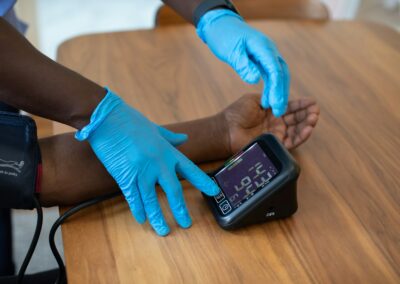The healthcare landscape is undergoing a paradigm shift, driven by innovation and the imperative to optimize processes for both patients and providers. At the forefront of this transformation lies the digitization of patient records, a strategic move with far-reaching implications for the future of hospital care.
This article delves into the compelling advantages of transitioning from paper-based systems to electronic health records (EHRs), empowering business executives, mid-level managers, and entrepreneurs within the healthcare sector to make informed decisions that can revolutionize their institutions.
Enhanced Efficiency and Streamlined Workflows
Paper-based records are notorious for being cumbersome, time-consuming, and prone to human error. Digitizing patient records eliminates these challenges, ushering in an era of enhanced efficiency. Authorized personnel can instantly access complete medical histories, test results, and treatment plans from any authorized device, regardless of location. This real-time accessibility fosters streamlined workflows, reduces administrative burdens, and allows healthcare professionals to dedicate more time to providing high-quality patient care.
Improved Accessibility and Collaboration
Imagine seamlessly sharing patient information with specialists across different departments or institutions in seconds. Digitization makes this a reality, fostering improved collaboration and communication between healthcare providers. This collaborative approach leads to more informed diagnoses, treatment plans, and ultimately, better patient outcomes. Additionally, patients themselves can access their healthcare information, empowering them to participate actively in their treatment journey.
Boosted Security and Data Integrity
Concerns about data security and privacy are paramount in healthcare. Contrary to popular belief, digital records can be significantly more secure than their paper counterparts. Robust EHR systems offer advanced encryption and access control measures, ensuring that patient data remains protected from unauthorized access, theft, or loss. Furthermore, regular backups prevent data loss due to accidental damage or natural disasters, upholding data integrity and safeguarding sensitive information.
Reduced Costs and Increased Revenue
The transition to digitized records may seem like an upfront investment, but the long-term cost savings are substantial. Eliminating paper filing, storage, and retrieval costs brings immediate financial benefits. Additionally, improved efficiency and reduced medical errors associated with legible, readily accessible records translate to lower treatment costs and potential revenue increases.
Harnessing the Power of Technology
Digitization paves the way for integrating cutting-edge technologies like artificial intelligence (AI) and machine learning (ML) into healthcare delivery. These technologies can analyze vast amounts of medical data to identify trends, predict potential complications, and personalize treatment plans, further enhancing patient care and optimizing hospital operations.
Conclusion: Embracing the Future of Healthcare
Digitizing patient records is not just a technological advancement; it represents a strategic shift towards a more efficient, secure, and patient-centered healthcare system. By embracing this transformation, hospitals can unlock a plethora of benefits, from improved patient outcomes and streamlined workflows to enhanced data security and financial gains. This journey towards paperless healthcare demands thoughtful planning, investment in the right technology, and effective change management strategies. However, the rewards are undeniable, paving the way for a future where technology empowers healthcare professionals to deliver exceptional care and patients experience a seamless, personalized healthcare journey.
#digitization #healthcare #EHR #hospital #patientrecords #efficiency #security #collaboration #AI #ML #futureofhealthcare























